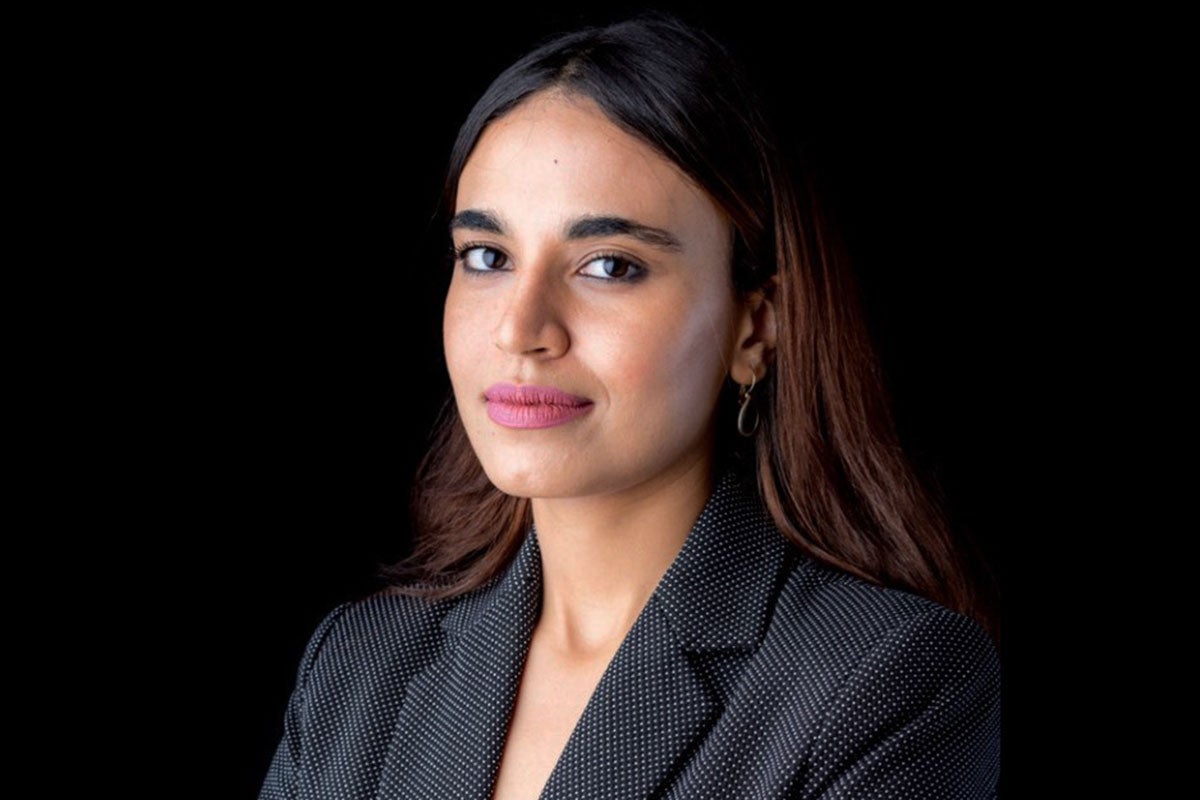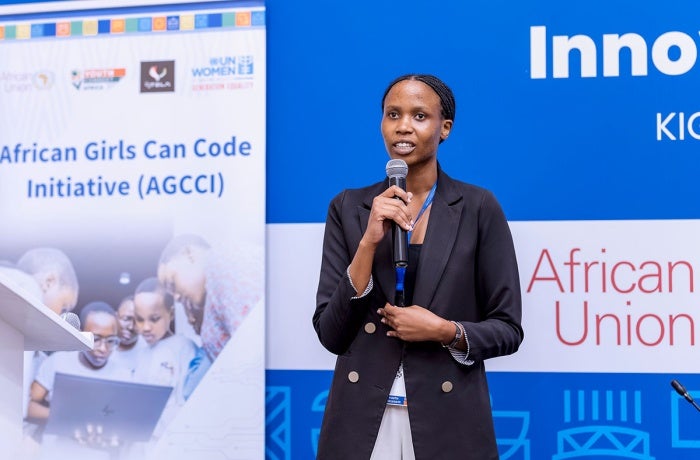Pushing forward: Preventing violence against women in online spaces
Marwa Azelmat is a digital rights expert and an activist involved with women’s rights movements and organizations around the world. At the intersection of these issues, Marwa is facing off against a central barrier to progress on both: online violence against women and girls.

Not just an insult
There’s a tendency, Marwa explains, not to take online violence seriously. “I keep hearing, ‘but this is just an insult,’” she says.
But it isn’t. Online violence against women is part of a spectrum of gender-based violence that keeps women from exercising their full human rights, both online and off. “What happens in the offline space is really reflected in the online space,” Marwa emphasizes. “And just like […] we don’t feel safe walking on the streets, we no longer feel safe walking on the digital streets.”
When online violence forces women out of digital spaces, the consequences can be far-reaching. Targeted campaigns against women human rights defenders and journalists imperil their work—and, at times, their lives. And women’s exclusion from the digital economy has wider implications for a country’s economic development. “[Online violence against women] should be seen as a threat to the public order,” Marwa says.
The legal system, however, doesn’t see it this way. In the eyes of the law, online attacks against women are standalone incidents. Rather than examining underlying causes and investing in prevention systems, “they just try to fix the incident”, Marwa says. And there usually isn’t much they can do in response to a complaint, anyway, since the onus is on the victim to provide proof—which a tech savvy attacker will likely have deleted.
Today, growing anti-feminist backlash, combined with increased reliance on digital spaces, is heightening online risks for women. “Movements sustain themselves right now [in] online spaces,” Marwa says—giving anti-rights activists new opportunities to infiltrate.
This is a matter of free speech, Marwa emphasizes, and governments have a responsibility to protect against violations: “We can’t undermine [free speech] just because it’s online.”
Power up
It was Marwa’s own experience studying information technology engineering that made her realize the urgency of integrating women’s rights with tech. “I felt like the system was really structurally marginalizing,” she explains. More women in STEM is not enough, Marwa says: “At the end of the day, we have systems that have not been designed to serve women.”
So she went back to school for international human rights law, specializing in information and communications technology (ICT). From there, she started working with women’s rights organizations, helping to bridge the gap between feminist movements and the tech sector.
Protecting women’s digital rights will require coordinated action from governments and the private sector, Marwa emphasizes. But there’s a part for all of us to play.
When you see violence online, don’t let it slide—report it. Call on tech companies to collaborate more fully with civil society organizations and the government, and make use of available forums—such as requests for public comments often made by oversight boards—to hold them responsible.
“To counter online violence at the individual level is to start by not accepting impunity,” Marwa says.
New connections
In a future without online violence, Marwa sees an online world full of women and girls getting to meaningfully connect. “Right now we have two billion women that are disconnected [from the internet],” Marwa says. “And that’s huge.”
But it’s more than a question of numbers. She imagines a new online world altogether, one not dominated by the interests of a few wealthy men: “an alternative feminist internet that works for everyone—not just women, but also gender diverse people and [other] marginalized communities”. That, she says, is the future we should be fighting for.









